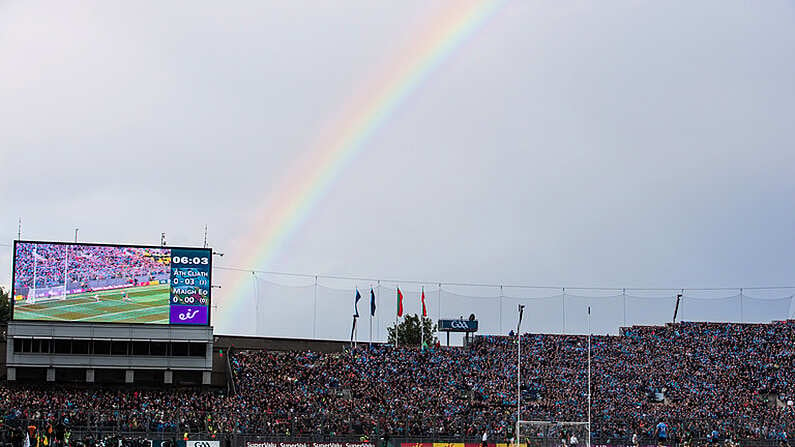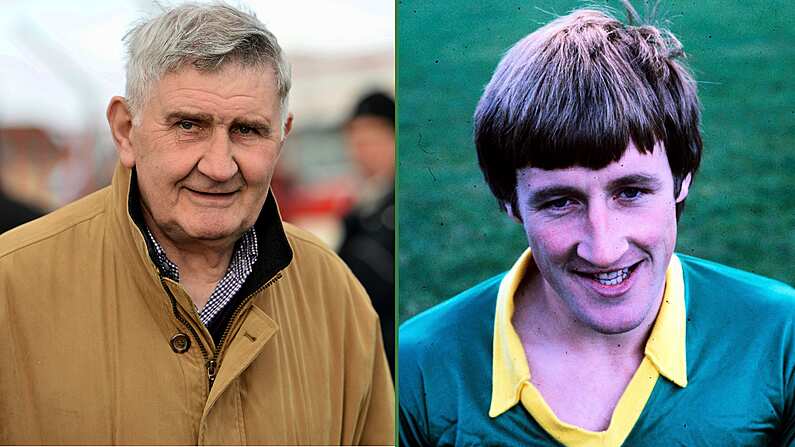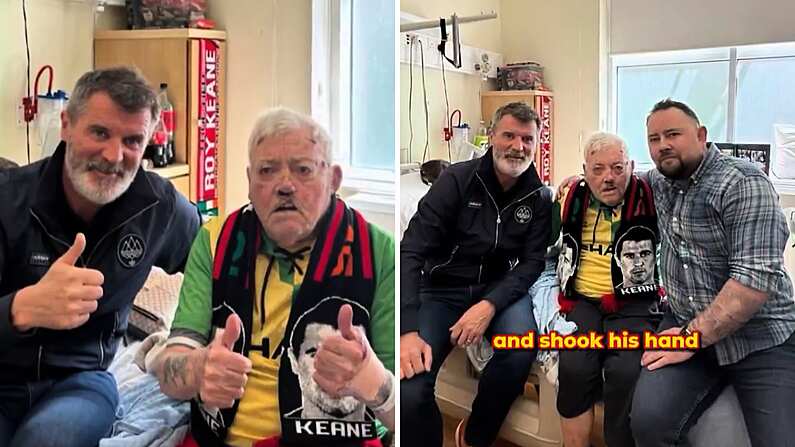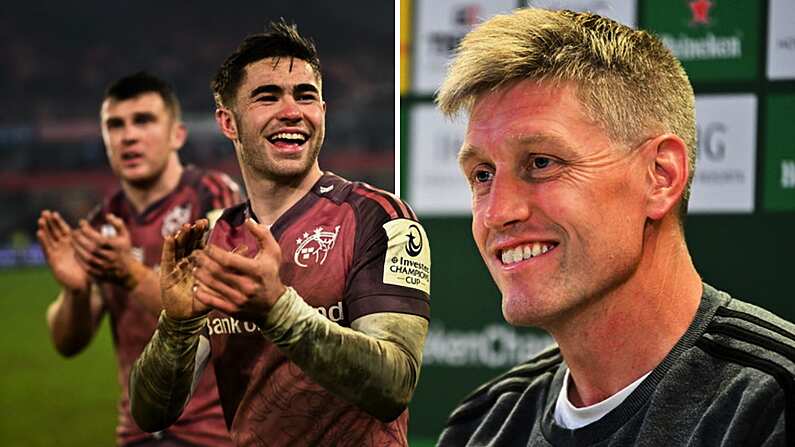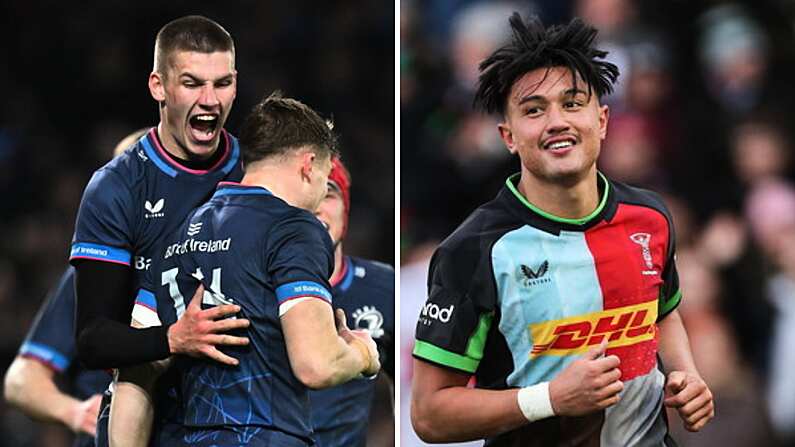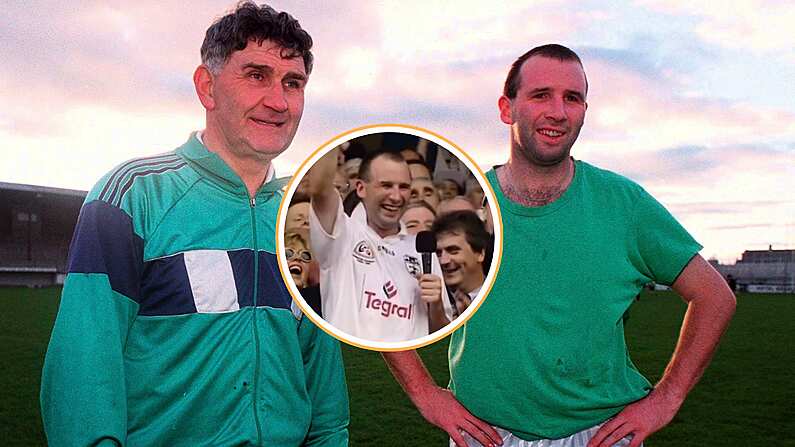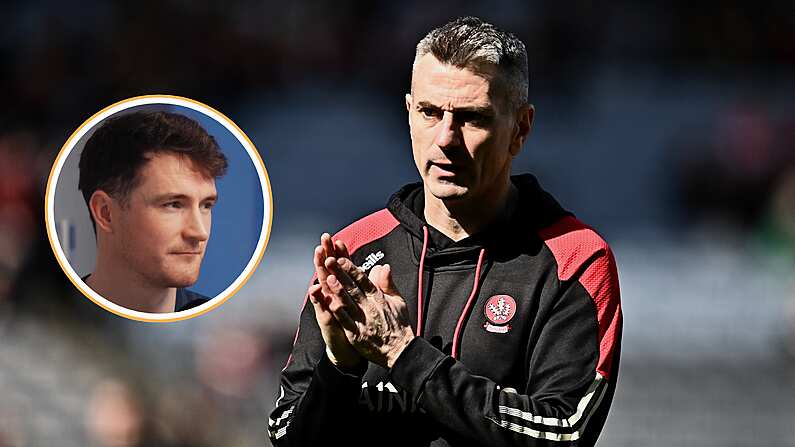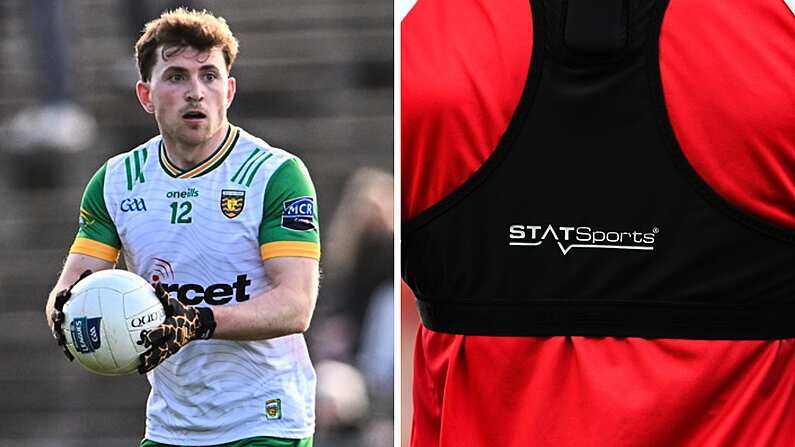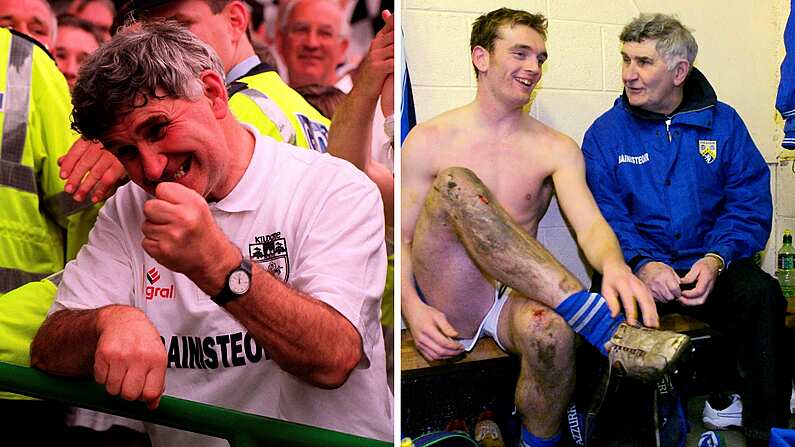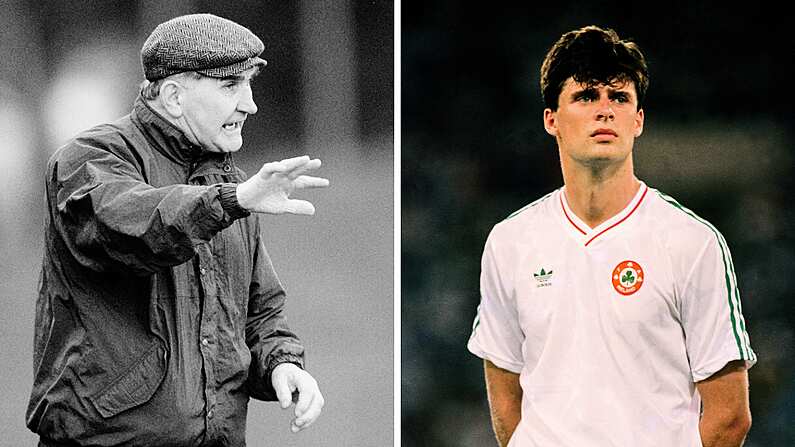Brian Mullins and Bernard Brogan Jr. rank near the very top of legendary Dublin GAA figures. Yet neither of them denies the help that the masses on Hill 16 can provide to even the most skilled of footballers.
Speaking at this week's #KingoftheHill podcast, both men recalled fondly how in their respective side's prolonged periods of success, the Hill has played a huge role.
You can listen to the podcast here.
Mullins notes how far things have come from the early days of his intercounty career where crowds were far smaller. He notes the 1974 All-Ireland final against Galway as a real turning point where the sheer size of the crowd left the side awe-struck beforehand.
'All-Ireland final day 1974 was just a massive occasion and the colour, it was even a shock to us in the dressing room when we went out to look out onto the pitch that this was actually happening. It was like Mecca and all kinds of things like that all rolled into one, the Pope's St. Peter's Square.'
The subsequent pitch invasion was also a new one to Mullins and all those around him. In those days, infiltrating the pitch at Croke Park was a lot easier than it is today.
'It was fairly open, the structure of the ground it was, with no real barrier...it was a lot more relaxed and I suppose part of that was at that time of the year and Dublin hadn't got a big following. There wasn't an awareness that huge crowds could become a contentious issue and that pitch invasions could become a contentious issue.'
Skip to nine minutes below.
For Bernard Brogan, a Hill packed to the rafters has been all he's known throughout his career. And the profound effect it has had on him has never been more evident than in the wake of scoring a goal in front of it during the 2007 Leinster final versus Laois.
It's easy to understand why he 'ran off celebrating like a lunatic' after fulfilling his childhood dream of wanting 'to make the Hill erupt'. Perhaps that's why he didn't really feel like a Dublin player until that moment since his older brother Alan, and father Bernard Senior (midfield partner of Mullins for many seasons) were such hugely decorated players before him.
'I ran off celebrating like a lunatic and actually had to sit down. The physio had to be called on I was so tired after the celebrations and my brother still slags me since. I had to sit down and John Murphy, our physio, came on and said "are ya okay?" and I just said "I'm actually just knackered John, gimme a second here". I was after running 40 yards for the goal and 60 yards celebrating.'
Interestingly, the St. Oliver Plunketts man says that by that stage, the roaring atmosphere of the Hill and Croke Park as a whole was no longer something which fazed him as his two previous seasons on the bench on the Dublin panel helped him get used to the pressurised atmosphere of it all.
Instead, it's been nothing but a driving force for himself and the team.
'I think there's times of a game when the Dublin supporters give you energy, there's times when there's a bit of a momentum switch, we've found it when we're winning that the Hill gets behind you and it drives you on, and goes right, let's go, let's go for the kill here. And there's been times where we've got a bit of a low point and momentum has gone against us, and someone in the Hill just starts a chant and you just get the goosebumps started and you say, okay we know where we are, back in the moment, the guys are behind us, let's go. And it gives you that little bit of a kick again.'
Training methods-then and now
Later in the discussion, the focus turned towards the differing methods both of these great Dublin teams operated under and continue to employ in Brogan's case. For all of the understandable talk of players being fitter and stronger than ever in the modern era, both men seemed to agree it's as much down to players training smarter nowadays rather than harder.
Indeed, Kevin Heffernan's side perhaps owed some of their success to their forward-thinking in adapting these kinds of new methods during the 1970s. Mullins hails the influence that Mickey Whelan, who had gone over to West Virginia to study physical education and coaching studies, had on the squad through his innovative training programmes. He credits him as a pioneer who gave Heffernan a protocol with varying exercises to keep training fresh and challenging.
In a similar vein, Brogan highlights the personal touch that modern training has implemented where there's different programmes for not only players of varying ages but also positions.
Training smarter is clearly the name of the game now, and when combined with the more emotive power that the Hill 16 crowd can provide, it makes Dublin a formidable outfit that will be very tough to knock off of the top of the GAA hill this summer.


